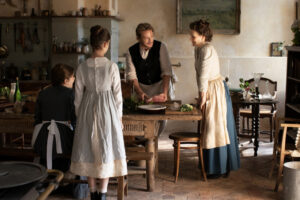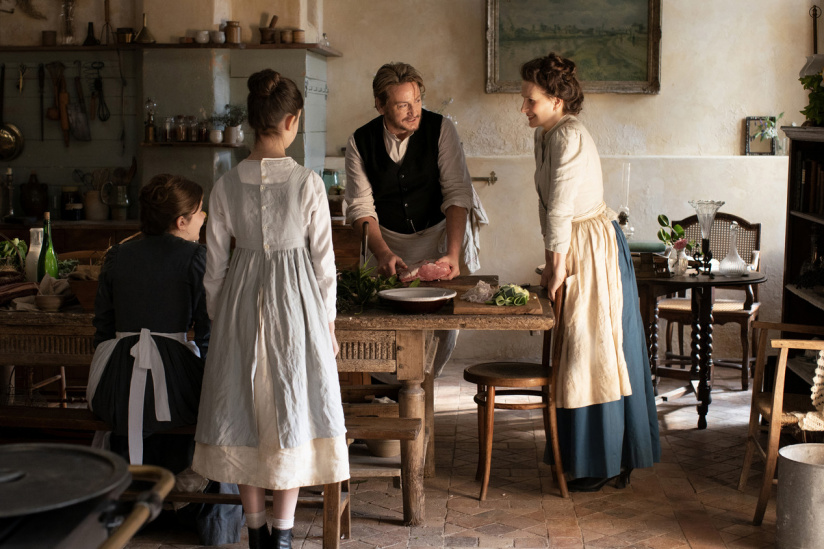Movie Info
Movie Info
- Director
- Tran Anh Hung
- Run Time
- 2 hours and 13 minutes
- Rating
- PG-13
VP Content Ratings
- Violence
- 0/10
- Language
- 1/10
- Sex & Nudity
- 1/10
- Star Rating
Relevant Quotes
O taste and see that the Lord is good; happy are those who take refuge in him.
“The kingdom of heaven may be compared to a king who gave a wedding banquet for his son.
Therefore I tell you, do not worry about your life, what you will eat or what you will drink…
“The Pot-au-Feu”

You do not have to be a Foodie to enjoy director Tran Anh Hung’s fabulous film about a French epicure and his female chef. Based on the 1924 novel by Marcel Rouff (published in English as The Passionate Epicure), the film’s simple plot, set in 1885, centers on famed epicure Dodin (Benoît Magimel) who has partnered for over 20 years with Eugénie (Juliette Binoche), his cook. They live together, their relationship extending from the kitchen to the bedroom, though they sleep in separate bedrooms. Dodin has proposed marriage many times, but Eugénie values her independence too much to submit to that era’s patriarchal form of marriage.
As they prepare an exquisite sauce with the teenage Pauline (Bonnie Chagneau-Ravoire) as a potential apprentice, Dodin quizzes the girl on the long list of ingredients in the sauce they are preparing. She tastes it again and is able to name most of the ingredients but not quite all. Both adults are pleased. Dodin often dines with a group of friends who love fine food as much as he. He accepts the invitation of a foreign prince to a dinner that is so elaborate that it requires eight hours to consume all the courses. He later judges the dinner as too rich, thus far inferior to one of Eugénie’s.
In the early scene in which a complex dinner is prepared and served to Dodin and his congenial friends, the men relish the food, and each offers a thoughtful comment on its exquisiteness. When Eugénie had brought in a dish, they had invited her to join them at the table, but she had declined, telling them that anything she would have to say is communicated in the food. Thus, the sting of male chauvinism—men at the table, women in the kitchen—is not an issue in this film. In the scene in which Dodin and Eugénie are cooking together, each executing their tasks with precision, they move around each other with the grace of dancers long used to each other.
Eugénie tries to hide her illness from Dodin, but it soon cannot be ignored. With his beloved now confined to her bedroom, the grief-stricken Dodin is now the sole meal preparer, his carefully prepared food his means of communicating his concerned love for her. These are tender scenes, and I think the One whose cautionary words about being over-concerned for the appetite, would understand this.
Not since Babette’s Fast has food and its preparation ben as gorgeously photographed, with cinematographer Jonathan Ricquebourg using natural light that highlights a scene in a Rembrandt fashion. This truly is a film worthy of being called “a feast for the eyes”—it’s a love story one for the soul as well.
This review will be in the March .issue of VP along with a set of questions for reflection and/or discussion. If you have found reviews on this site helpful, please consider purchasing a subscription or individual issue in The Store.

